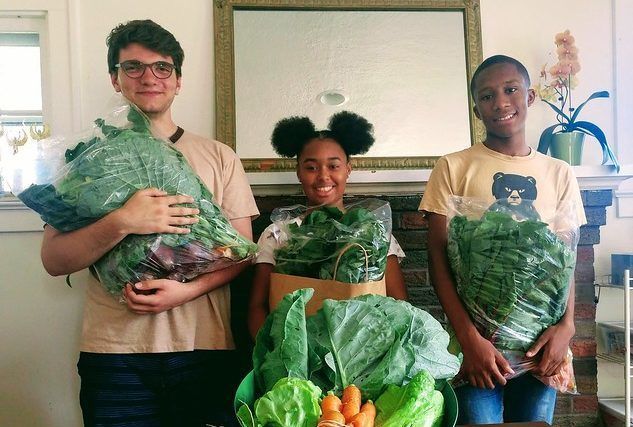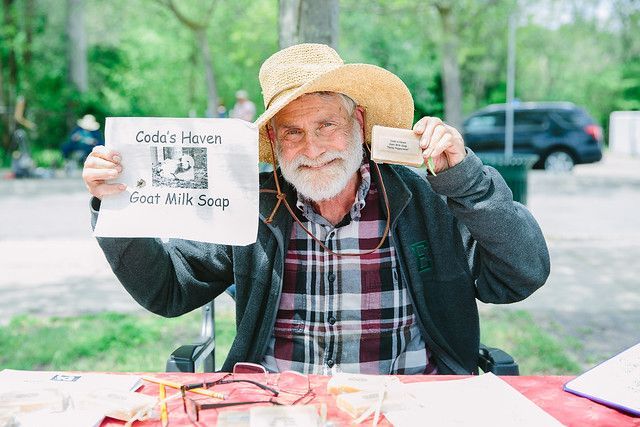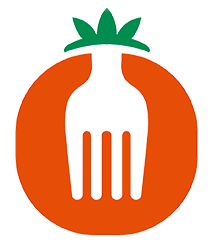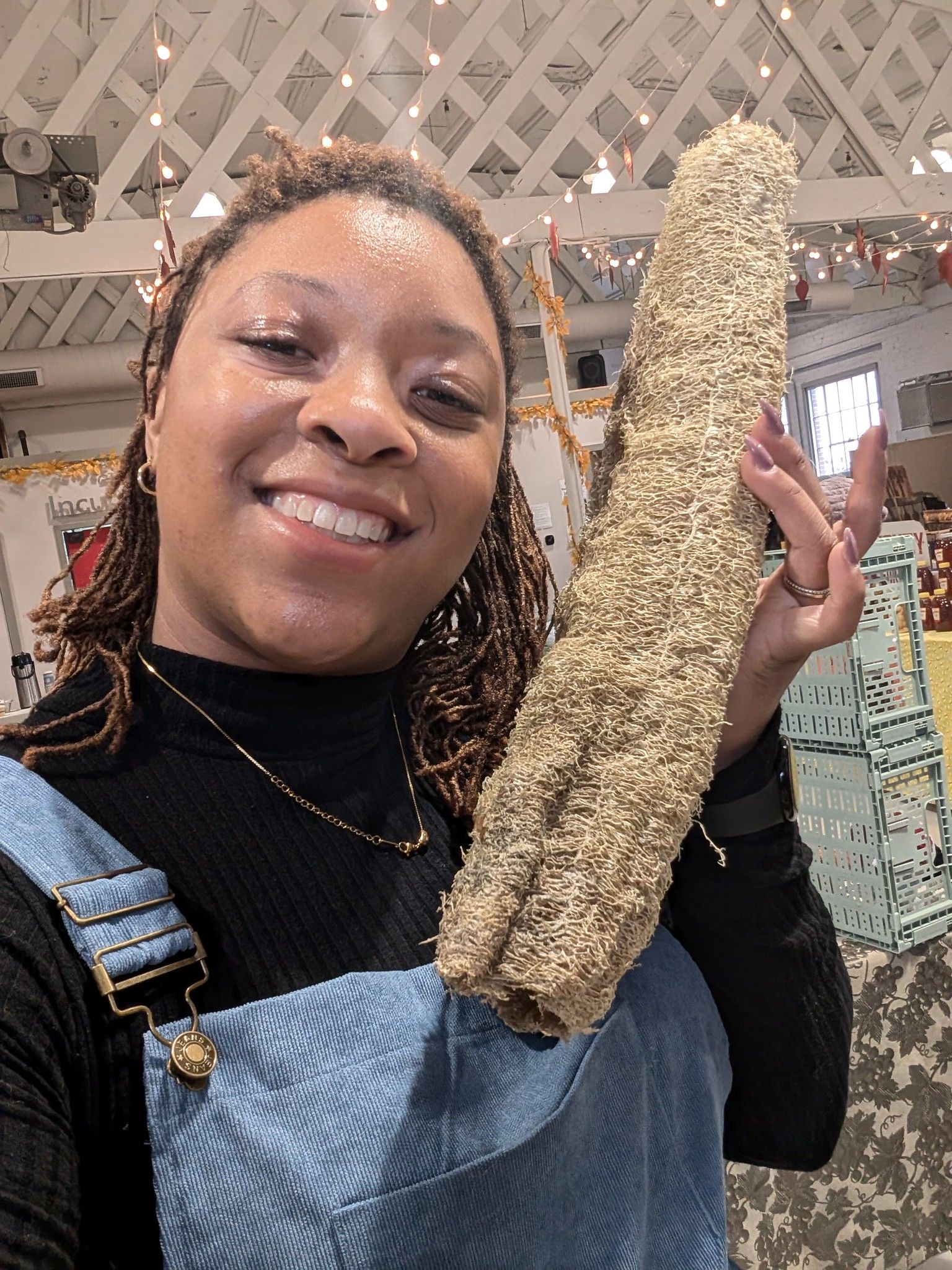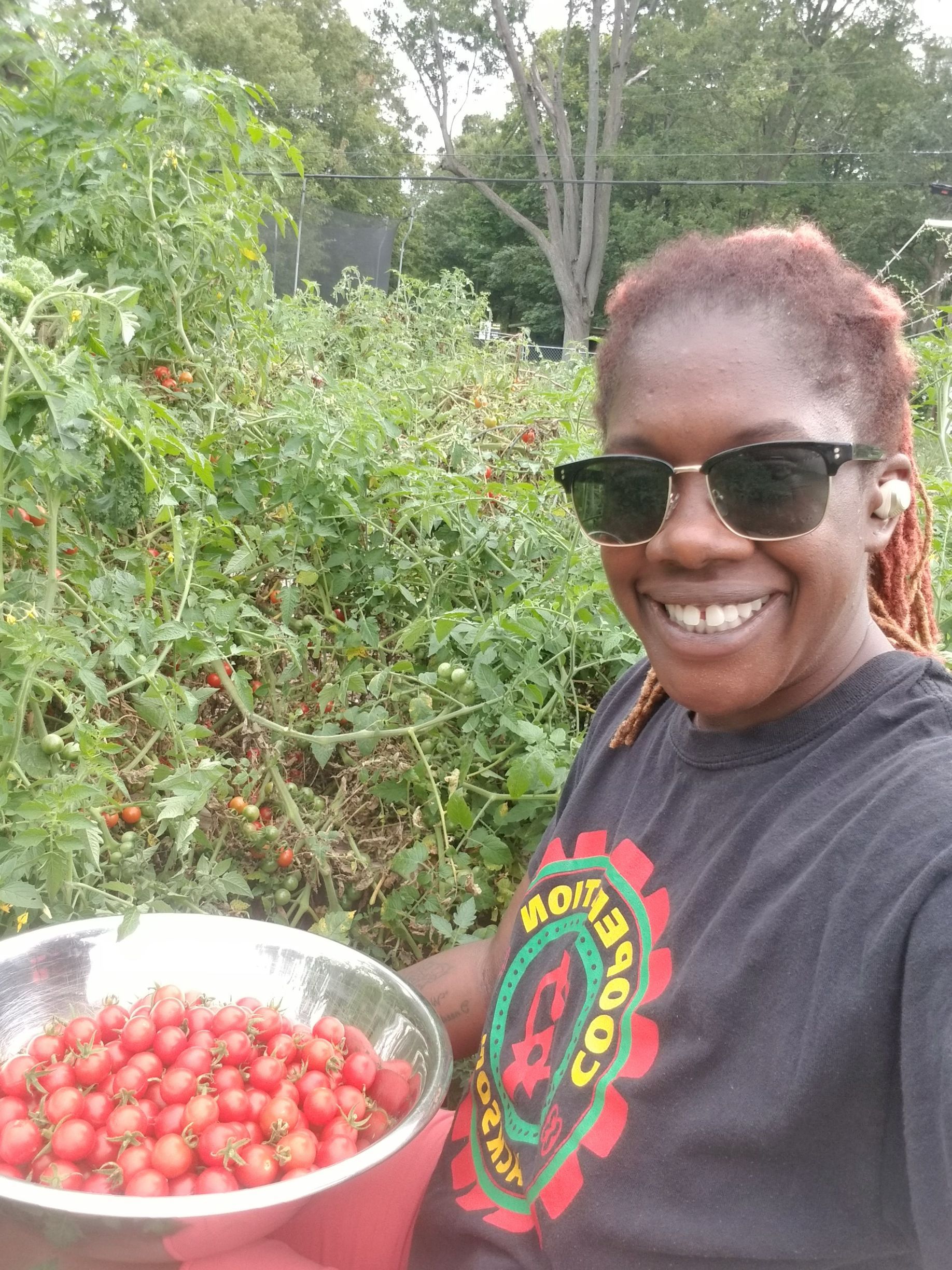Article
Tea, Honey, and the Gift of Local Food
A Conversation with Growing Hope’s Teen Leaders
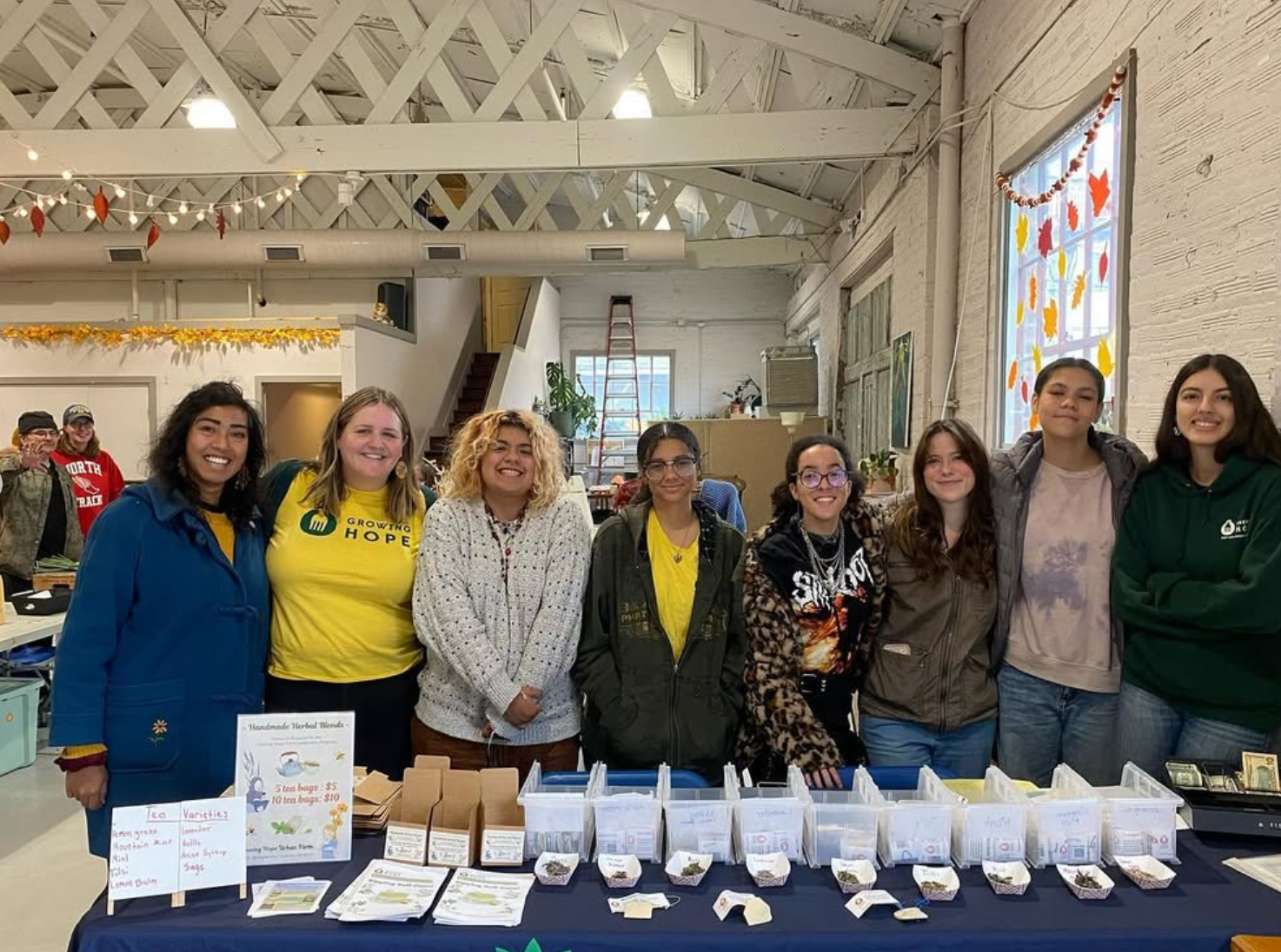
For most people, tea and honey are something you grab off a store shelf. But for a group of teens in Growing Hope’s Teen Leadership Program, these simple products became an experiment in food sovereignty, a crash course in business, and a way to build relationships with their community. They grew the herbs, harvested the honey, designed the packaging, and brought their creations to the Ypsilanti Farmers Market—where something amazing happened.
I sat down with Nick Garay, Tuula Martinez, Eli Harris, Jaylah Cotton, Josie Smith, and other Teen Leadership Program members to talk about what it was like to go from farm to market, why food is more than just a product, and what they learned about themselves along the way.
The Journey from Farm to Market
Julius Buzzard: I love that you didn’t just sell something at the market—you created something. Can you walk me through the process of making your tea and honey?
Tuula Martinez: We grew the herbs ourselves at Growing Hope Urban Farm, harvested them, and dried them in the prop house. A few weeks later, we processed them and put them into containers. Then came the fun part—designing and making tea bags! We had to decide together what flavors would sell best, how many tea bags to include in each pack, and how to package everything. I was part of the design team, so we worked on the labels and ordered the boxes.
Eli Harris: After our first day selling tea, we looked at which varieties sold best and adjusted. We added calendula because people seemed really interested in new flavors. Every tea bag was hand-assembled from coffee filters, cotton yarn, and staples—it was so much work!
"Wow, I’m Running a Business"
JB: What was it like to have your own booth at the market, talking with customers and selling something you made?
Nick Garay: It was really fun! I loved being at the market, seeing other vendors, and getting all these customers. It was kind of surreal to think that people would buy something we made—and then go home and drink our tea!
Sienna Troy: Other vendors came up to us and asked questions, and some even bought our tea. It felt like we were part of this bigger community.
Tuula Martinez: The vendors were so welcoming. It was our first time selling, and they made us feel like we belonged.
Food as a Gift & the Power of Farmers Markets
JB: Has this experience changed the way you think about food, business, or what you might want to do in the future?
Nick Garay: The market and working at Growing Hope really changed my perspective. I read Braiding Sweetgrass and The Serviceberry and started thinking about the gift economy—how food carries meaning when you buy it directly from the person who grew it, rather than just grabbing something off a grocery store shelf. That’s what this market is about.
Abby Rogers: It’s amazing to see how much work goes into farmers markets. Meeting the other vendors, learning about their products—it really opened my eyes to how much passion and effort goes into making local food available.
Eli Harris: A lot of people came to the market with a specific idea of what they wanted, but once we started talking to them, they got interested in what we were selling. That interaction made all the difference.
What’s Next?
The Teen Leadership Program is already planning to return to the market this year, bringing new products and fresh ideas.
"We’re talking about making herb salts next!" says Sienna.
"We want to show how growing food can be accessible to everyone," adds Tuula. "It’s a great investment—you plant once, and you keep harvesting. We’re practicing what we preach!"
And as for the market itself?
"We’ll be back—at least once this summer and again for the indoor market!"
📍
NEW LOCATION: 16 S. Washington Street
🛍 Opening Day: May 3, 2025 ⏰ 9 AM – 1 PM
Want to support the next generation of food entrepreneurs? Become a Friend of the Market today!
👉
Become a Friend of the Market Today!
share this
Related Articles
Related Articles
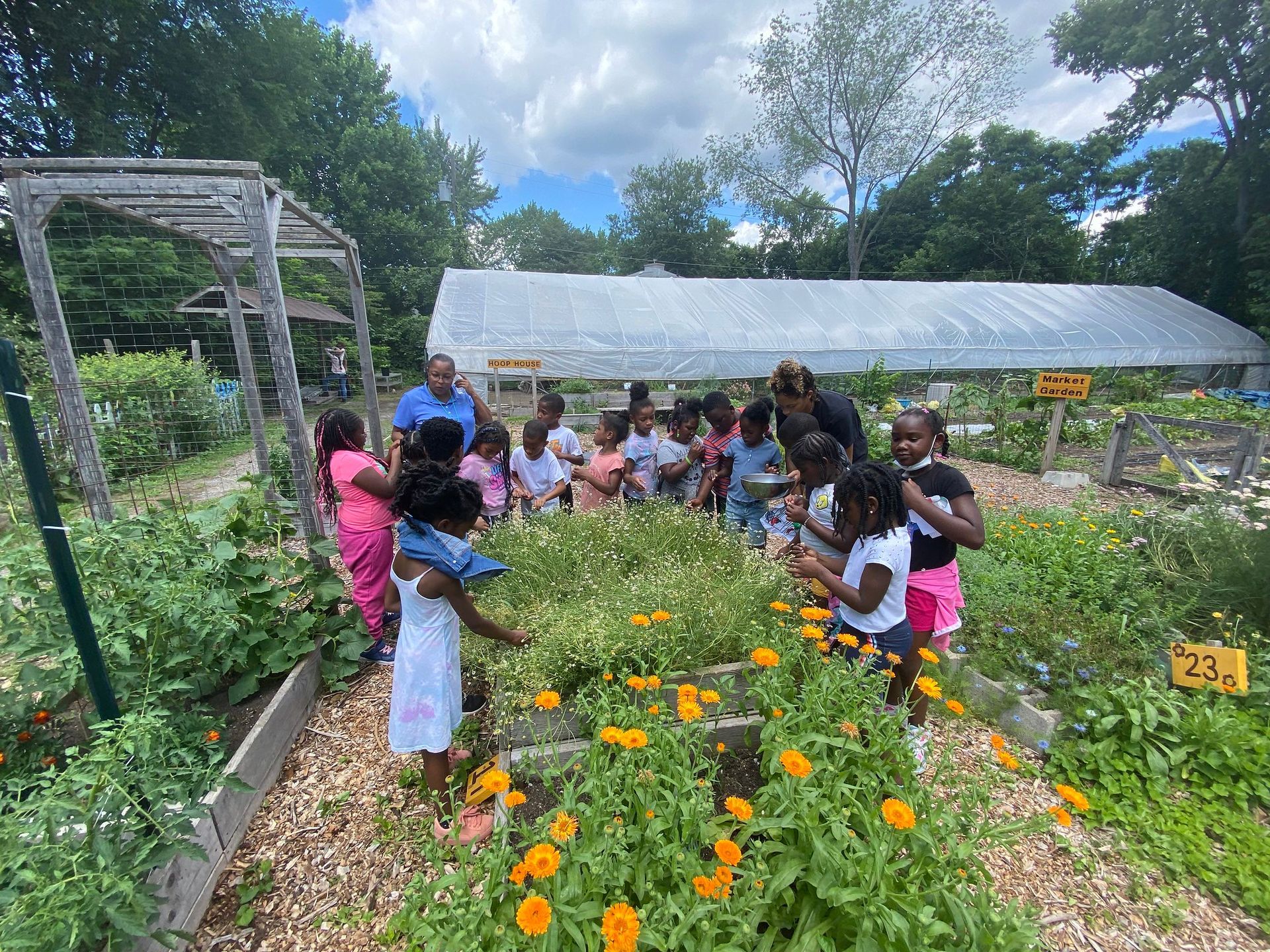
STAY UP TO DATE
GET PATH'S LATEST
Receive bi-weekly updates from the church, and get a heads up on upcoming events.
Contact Us


